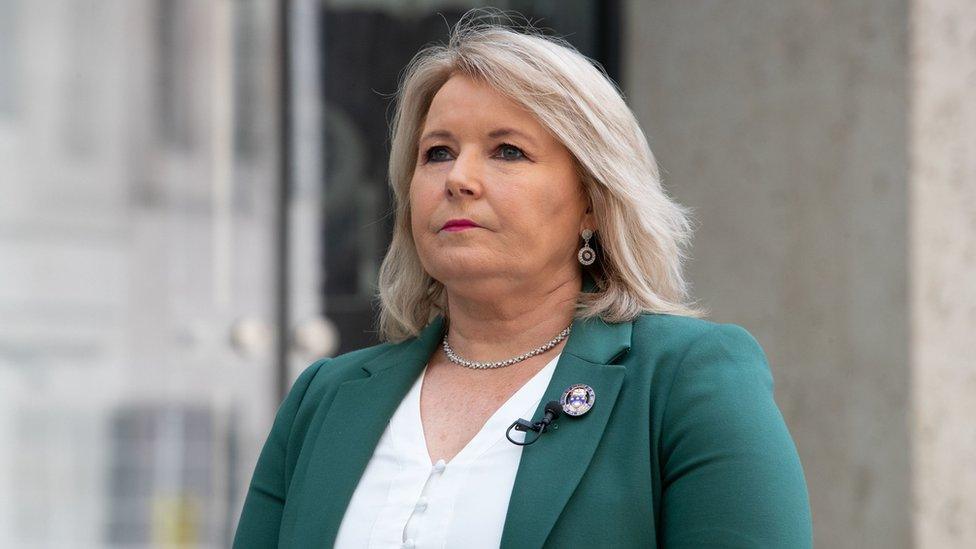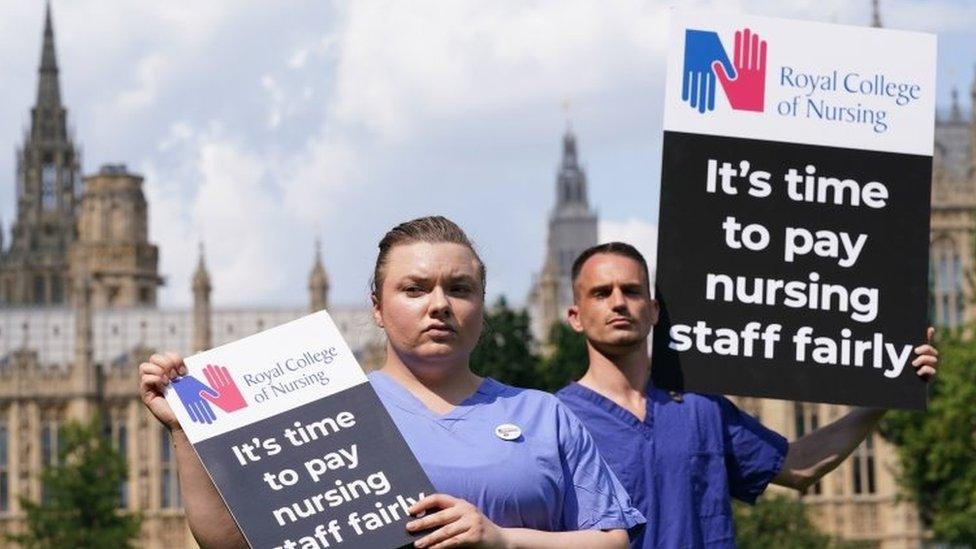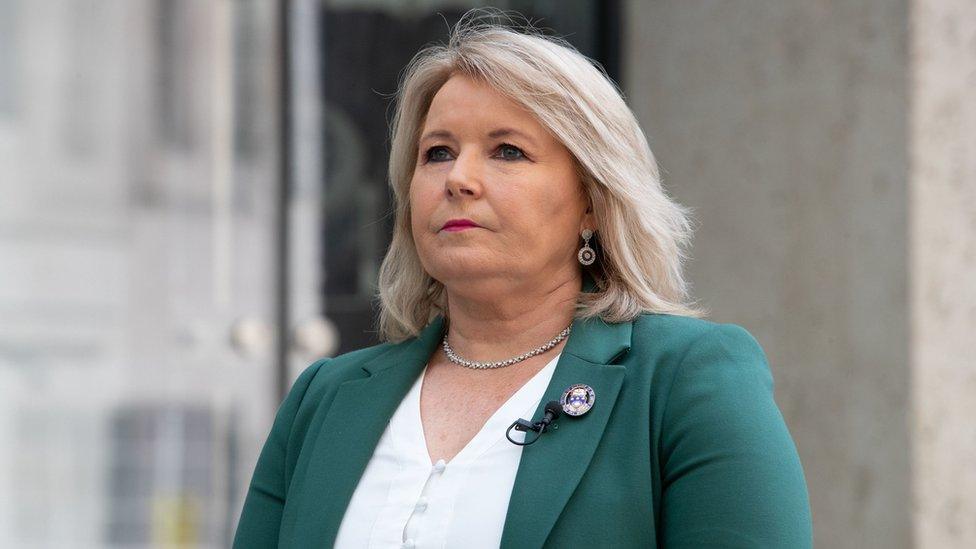Nurses strike because patients are dying - RCN union boss Pat Cullen
- Published

Patients are not dying because nurses are striking, nurses are striking because patients are dying, the head of the Royal College of Nursing says.
Speaking at the union's annual conference, Pat Cullen praised nurses' protests over pay and safe staffing.
She told delegates she has been invited to have more discussions with Health Secretary Steve Barclay.
The government confirmed the meeting but said a deal recently reached with other unions would "not be reopened".
Instead the talks would focus on how the NHS can be made "a better place to work", sources said.
They pointed out the pay deal in England - a 5% rise this year and a one-off lump sum worth at least £1,655 to boost last year's 4% pay rise - was in the process being implemented, with the first payments expected in the pay packets of NHS workers in June.
The deal does not cover doctors and dentists who are on separate contracts.
Ms Cullen's speech came after her members rejected the pay offer from government, despite her recommending that they accept the deal.
Nurses rejected it by 54% to 46%.
It has put the RCN leader in a difficult position, but she was quick to praise her members, calling them an "inspiration".
She urged them to vote in the forthcoming ballot on future industrial action, which opens next week and will give results in June.
The union's previous mandate for strike action, which has seen them take part in eight days of walkouts in England so far in this dispute, expired earlier this month.
She said the pay disputes in Wales and Northern Ireland were not over either, since no deals have yet been agreed on pay.
She told members at the conference in Brighton: "Patients are not dying because nurses are striking. Nurses are striking because patients are dying. It is as clear as that."
She said the NHS was "sailing close to the wind", with staff shortages threatening patient safety.
The ballot is too close to call
In the hall, her speech was well received by delegates - and there is certainly a lot of pro-strike sentiment among those attending.
Nurses have taken to the stage during the week promising to fight until they win.
But it must be remembered these sort of gathering tend to attract those with the strongest viewpoints.
There are around 3,000 delegates in Brighton - around 1% of the RCN's membership.
It is why those involved in the running of the strike ballot believe it is too close to call over whether a strike mandate will be achieved.
For the vote to count, over half the membership has to vote - and a majority of those to back action.
First time around this was only achieved in half of NHS trusts.
As it was run as a series of local workplace ballots nurses in those trusts were able to strike.
But this one is a national vote - essentially an all or nothing last throw of the dice to get ministers back to the negotiating table.
It means if it fails to reach the required threshold the threat of industrial action disappears.
Related topics
- Published2 May 2023

- Published14 May 2023
